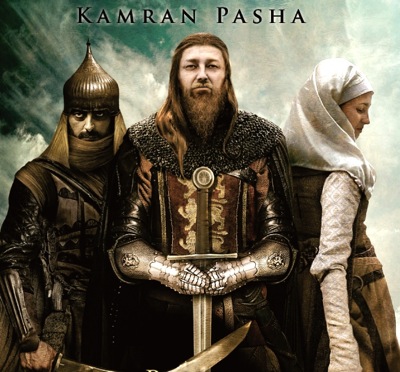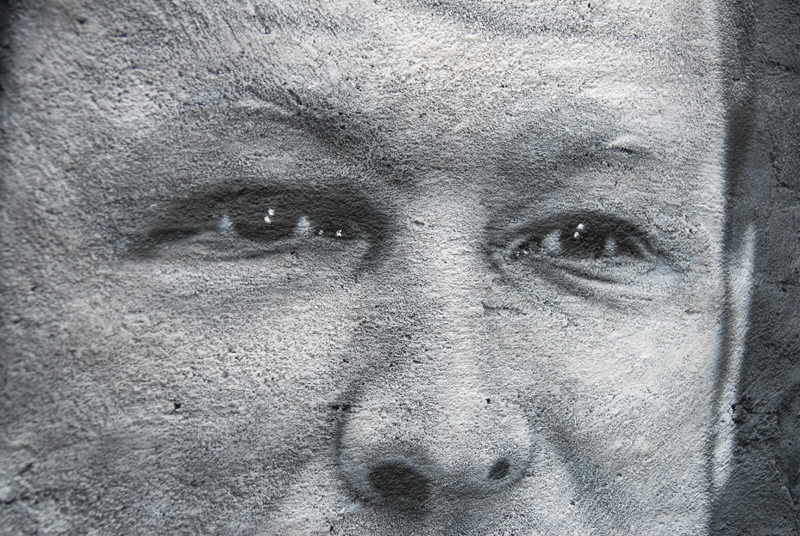Following his intimate exploration into the life of Aisha, wife of the Prophet, in Mother of the Believers, Kamran Pasha sets out to construct a world subject to countless legends, and centered on another of the Islamic world’s most sacred gems – Saladin. Shadow of the Swords is primarily set between Saladin’s capture of Jerusalem and King Richard the Lionheart’s departure from the Holy Land.
Although it is a story of faith and honor, massive battles and political intrigue, the novel focuses on the story of its young Jewish protagonist, Miriam, who becomes caught between the love and ambitions of Richard and Saladin. A captivating read, Pasha manages both to engage the past and spark reflection on the world of today.
Pasha originally intended the manuscript to be a screenplay, and this comes through in his writing. The characterizations, plot, narrative structure and imagery are indelibly cinematic, and the balance of love and war exude the preferences of American audiences. The sense of scale is immense and evokes grandiose landscapes, spanning from Western Europe to Cyprus to the Holy Land, which would beautifully translate onto the movie screen.
While Pasha’s characters are by no means flat, they’re intricacies are generally explored only insofar as they advance the plot. Pasha’s Saladin retains much of the romantic idealism with which he is often depicted, derived both from the historical evidence of Saladin’s chivalry and the author’s own professed admiration of the infamous Sultan. Although the author portrays Saladin in moments of vulnerability, his weaknesses often engender sympathy and a sometimes stronger sense of majesty. While his adherence to certain Islamic sexual mores in the novel may give pause to some, Pasha describes such scenes with surprising tenderness. The author’s gentle language burgeons Saladin’s legendary stature and evokes a pure form of love that contrasts sharply with the carnal sexuality of many of the European crusaders who appear in the narrative.
Although King Richard the Lionheart is an apparent contrast to Saladin’s magnanimity and benevolence, Pasha does add a degree of depth to the character, examining his motivations and demeanor with a nuance not generally found in the historical record. Richard grapples with allegations of homosexuality and a father who contravenes his supposed right to the throne. In addition, his friendship with Sir William Chinon explores the many emotional levels of Platonic friendship, and adds a slight degree of empathy to the character.
In Miriam and her uncle, the famous Jewish theologian Moses Maimonides, Pasha introduces a unique aperture into the world of the crusades through the perspective of the region’s Jewish population. Through the novel’s main female character, Miriam, Pasha addresses the pains of rape and loss, investigates the complex definition of female sexuality and draws back the curtain to the world of Harem politics. Miriam is strong, confident and intelligent, and wrestles with the consequences of publicly being a woman of such qualities. The filter through which she sees her world, from topics ranging from modesty and faith to visions of the future is a fresh and unique element of the narrative.
Maimonides is shown as a close confidant of Saladin, subject to court biases but always respected and deeply trusted by the Sultan. That this relationship, between one of the most beloved figures in Islamic history and his Jewish advisor, defies contemporary assumptions is never lost on the author. Amused at the fears of future strife between the communities at one point, Saladin wonders, “The Arabs and Jews had been brothers for almost five hundred years. They had worked together ceaselessly to expand the civilizing influence of the caliphate and to beat back the ignorant hordes of Europe. How could it ever be otherwise?”
Shadow of the Swords is not a novel concerned with the common men and women caught in the middle of the Crusades. It’s scenes of battle, though cutting and gruesome in their descriptions, are conduits through which knights, generals and kings display their cunning, heroism or barbarism. Although its characters exhibit intimately human anxieties and emotions and deal with issues of rape, sexuality and gender, the characters are, for the most part, non-representative of normal people at the time. They are fluent in multiple languages, well versed in a broad array of scholarship, wealthy and have access to (or are) the most powerful men and women of the era.
In no way does this approach fall short; rather, it effectively advances the author’s message. The aim of the novel is twofold. First, it pushes the readers to humanize these larger-than-life historical figures and embrace their faults and impulses along with their triumphs. Second, it seeks to engage the readers’ conception of the current state of world affairs on issues as pertinent as religious fanaticism and intercultural relations. On both levels Pasha succeeds. An effective portrayal of the Crusades and idealistic rendering of the lessons to be gathered from them, Shadow of the Swords is an engaging work of historical fiction and an encouraging addition to Pasha’s repertoire.
(Photo Source: El Umbral de Nat)
Adam Sitte is a writer based in Washington, DC working on civilian empowerment in Israel and the Palestinian Territories. He is a graduate of the University of Wisconsin, Madison.






I would like to read it. You may need it write my essay
Thanks for sharing with me such a nice information,i really like this blog so much because it gives me lot’s of knowledge.
==================
Static Caravan Insurance